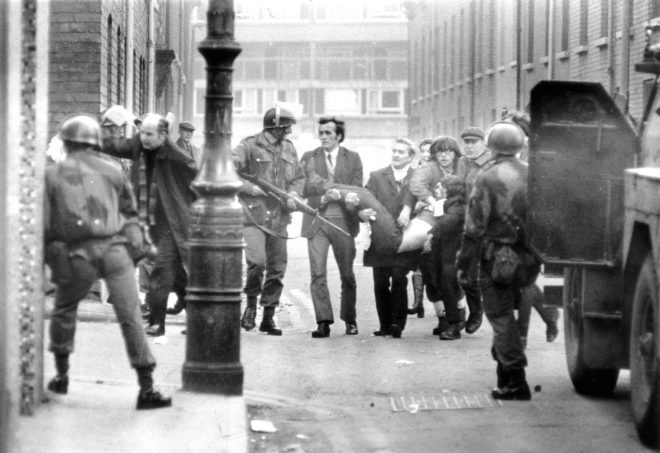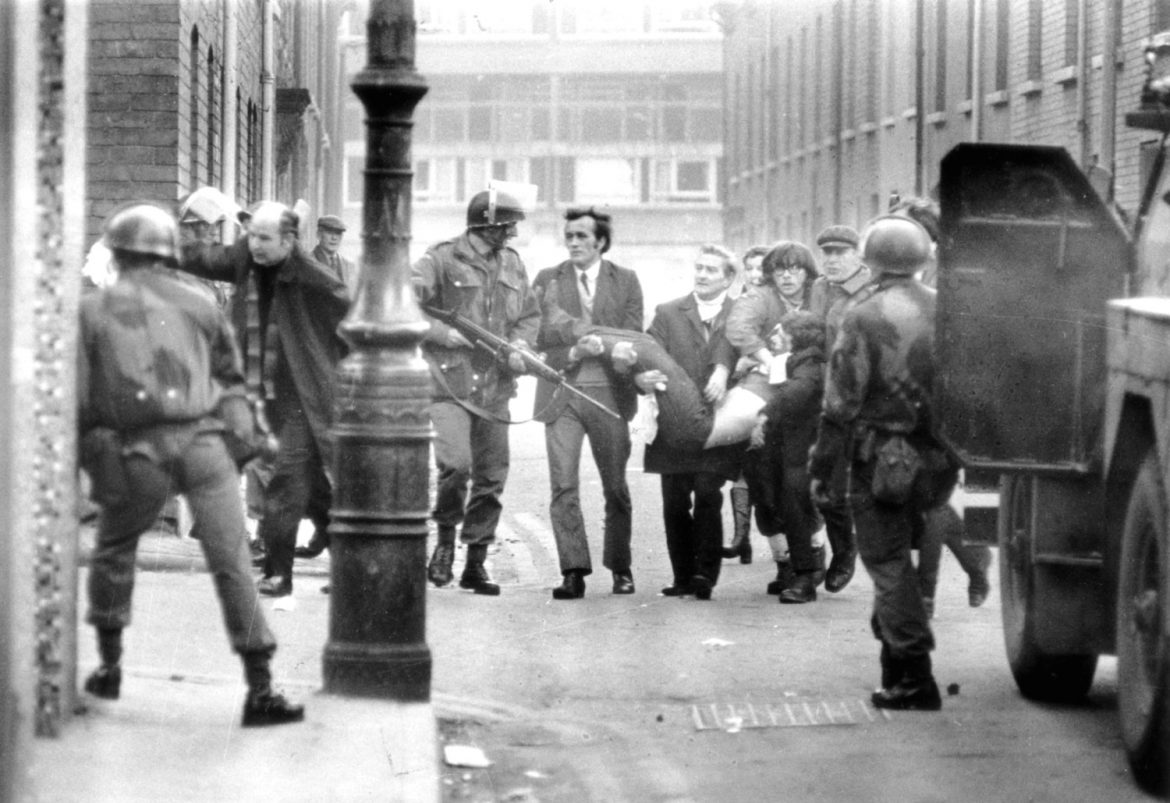 PROSECUTORS considering bringing charges against former British paratroopers over the Bloody Sunday murders have been told one of the soldiers has died.
PROSECUTORS considering bringing charges against former British paratroopers over the Bloody Sunday murders have been told one of the soldiers has died.
A solicitor for the soldier, known as Soldier N, last week informed the Public Prosecution Service in Belfast of his death.
Thirteen people were shot dead when members of the Army’s Parachute Regiment opened fire on civil rights demonstrators in Derry in 1972.
A fourteenth person died later.
In an email sent to some of the Bloody Sunday relatives, the PPS said: “We received word last week from Soldier N’s solicitor that Soldier N had recently died.
“We don’t have any reason to doubt the information we’ve been given but I had directed the police to get some formal proof of that (a death certificate) and was waiting on that before alerting the families.
Kate Nash, whose 19-year-old brother, William, was killed on Bloody Sunday, said she was disappointed at the news of Soldier N’s death.
“If you walked in our shoes, you would realise how important justice is, not just to us, but to everybody,” said Ms Nash told the BBC.
“My brother, by not receiving justice, is being treated as worthless, which he is not.”
Eighteen ex-paratroopers have been reported to the PPS over the murderss and the Bloody Sunday victims are currently waiting to hear if any will face charges.
A decision over whether to charge soldiers is expected at the end of February.
The Ministry of Defence said it did not comment on individual cases.
There have been a number of investigations into the events of Bloody Sunday, including the Widgery Tribunal – which was later described by some as a whitewash – and the Saville Inquiry, which in 2010 led to then Prime Minister David Cameron apologising to the Bloody Sunday families.
The PSNI began a murder investigation after the Saville Report on the killings in 2010 said that those who were killed or injured on Bloody Sunday were innocent.
The PPS are considering bringing criminal charges against the Bloody Sunday soldiers.
They include murder and attempted murder, wounding, perjury and joint enterprise, which means an offence where two or more people are involved.
The correspondence stated:
Two soldiers were reported to the PPS for the shooting of Damien Donaghy and John Johnston, the last person to die
Four soldiers were reported for the killing of six people; also reported over the wounding of seven people
Three different soldiers were reported over the killings of four other people
A further three soldiers were reported over the killing of Kevin McElhinney
An additional seven soldiers – one of whom had since died – were reported over the killing of John Duddy and the shooting of Margaret Deery, Michael Bridge, Michael Bradley, Patrick McDaid, Patrick Brolly and Pius McCarron
One soldier was reported for the killing of Hugh Gilmour and another soldier for the killing of Kevin McElhinney
The four soldiers who were dead at the time the BBC obtained the correspondence were reported for the killing of nine people
Tags:





